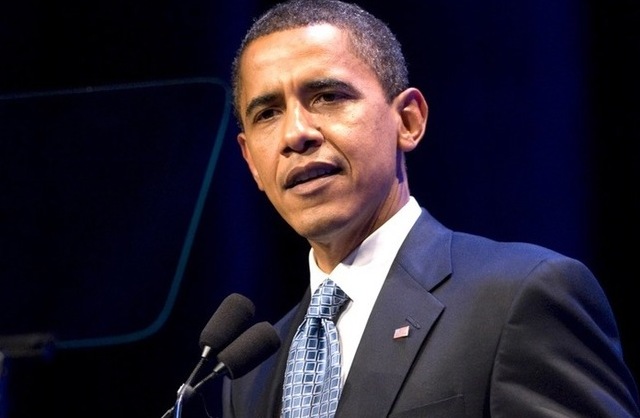 (Photograph by © Gediyon Kifle)
(Photograph by © Gediyon Kifle)
Tadias Magazine
By Tadias Staff
Updated: Thursday, November 8, 2012
New York (TADIAS) – U.S.-Africa relations was not part of the conversation in the 2012 U.S. Presidential elections, but what does the re-election of President Barack Obama mean for American diplomacy with Ethiopia?
“The election campaign had almost nothing to do with African issues,” said David H. Shinn, former U.S. ambassador to Ethiopia. “As a result, I don’t see the re-election of President Obama and the new Congress, which is little changed, having much impact on US-Africa or US-Ethiopia relations.”
According to Shinn once the United States deals with the looming fiscal crisis, we will see more attention focused on Africa by the Obama Administration, including “a major visit” to the continent. “Kenya will certainly be on the list,” Ambassador Shinn said. “The other countries will be selected based on their progress with democratization and economic development in that order.”
Ambassador Shinn, who is currently an Adjunct Professor of International Affairs at The George Washington University in Washington, DC and a frequent commentator on East African Affairs, added: “Assignments in the Senate and House on committees related to Africa will be important, but I don’t see much change there either.”
Professor Alemayehu G. Mariam, who teaches political science at California State University, San Bernardino, and a contributor to various Ethiopian websites, said although he is one of many Ethiopians who have been disappointed by the Obama administration’s ‘see-no-evil’ approach to Ethiopia, he nevertheless was pleased by the Ethiopian American voter participation in the 2012 elections as well as by the re-election of President Obama.
“I fully supported President Obama’s re-election despite lingering disappointments over his administration’s policy of willful blindness to flagrant human rights violations in Ethiopia,” Professor Alemayehu said. “But I believe in a second term he will vigorously pursue a foreign policy agenda that balances America’s global strategic interests with its commitment to promote the values of freedom, democracy and human rights in Africa and elsewhere.”
He added: “I was glad to see a healthy and civil debate among Ethiopian Americans on whether to support President Obama or Gov. Romney. In America, we have the constitutional right to vote, organize and express ourselves without fear or penalties. I agree wholeheartedly with the president’s election night speech regarding the value of a vigorous and civil debate in a democracy: “These arguments [over the direction of the country] we have are a mark of our liberty. We can never forget that as we speak people in distant nations are risking their lives right now just for a chance to argue about the issues that matter, the chance to cast their ballots like we did today.” I remember with great sadness that in November 2005, hundreds of Ethiopians lost their lives and thousands were imprisoned for peacefully challenging what they believed to be theft of an election and the silencing of the voices of dissent and democratic opposition in Ethiopia since that time. I am very pleased to see the high level of excitement, enthusiasm and participation of young Ethiopian Americans in this election. Nearly one-fifth of President Obama’s support came from young people. It is heartening to see that young Ethiopians are an important part of the youth vote.”
Ambassador Shinn said he is optimistic that a more robust form of democracy will eventually take root in Ethiopia as well, but that initiative must come from the Ethiopian side. “With a new government in Ethiopia and a government in Washington with a new lease on life that is committed to encouraging democratic principles, I am hopeful there will be progress in Ethiopia,” he said. “But this depends more on Ethiopia than it does the United States.”
Former Ethiopian opposition leader Judge Birtukan Midekssa, who is currently a visiting fellow at Harvard University Law School (President Obama’s alma mater), noted she’s appreciative of “the dynamic” nature of the democratic culture in the United States. “What is impressive is that the deep commitment of the American people to various institutions of their country, their willingness to play by the same rules when it comes to conducting elections, and the enormous value they give to the whole process. In my opinion, these are all part and parcel of what is at the epicenter of this remarkable achievement,” she said. “I think all the candidates, campaign volunteers of both sides and everyone involved deserve to be congratulated for making the election a success.”
Birtukan highlighted: “As it was the case in most of the previous elections, the US presidential race of this year also encourages and inspires multitudes around the world, including Ethiopia that is laboring to give birth to democracy in its own unique national color. It is my strong expectation that President Obama and his administration would renew their commitment to show more solidarity with the people in the African continent as outlined in his Accra speech at the beginning of his first-term.”
For Ayele Bekerie, an Associate Professor of History and Cultural Studies at Mekelle University in Ethiopia and a scholar of African and African American studies, the re-election of Obama is a vindication for Obama’s historic presidency. “Obama wins and that means Americans have accepted his leadership,” he said. “The voters have given Obama a second chance and he has to perform now. I believe his election is good news for U.S.-Ethiopia relations.”
We called the Ethiopian Embassy in Washington, D.C seeking input from Ambassador Girma Birru for this article. The Ambassador was unavailable to comment. We will update the story when we receive a response.
—
Related:
President Obama Wins Second Term
Video: Watch the world reacts to Obama’s victory (NBC News)
Visit NBCNews.com for breaking news, world news, and news about the economy
—
Join the conversation on Twitter and Facebook.

























